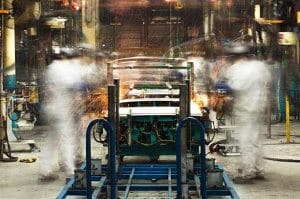How the U.S.-Mexico Supply Chain Provides Certainty in Uncertain Times
05.08.21 For years, U.S. manufacturers have invested in facilities in Asia, primarily China, to reduce operational costs. Asia became the top manufacturing center for North American companies expanding their reach in areas such as automotive, electronic, and medical devices.
For years, U.S. manufacturers have invested in facilities in Asia, primarily China, to reduce operational costs. Asia became the top manufacturing center for North American companies expanding their reach in areas such as automotive, electronic, and medical devices.
Though this strategy allowed companies to gain cheap labor, it weakened the regional supply chain in both the U.S. and Mexico. However, there’s been a shift over the past 20 years that has gained significant steam more recently and provided a sense of certainty for those manufacturing in Mexico. There are three key areas that have caused many U.S. manufacturers to rethink their strategies and consider ally-shoring with Mexico. These are:
- Strengthened ties through the USMCA
- Open travel and trade amidst the Covid-19 pandemic
- Future developments benefiting from historic successes
Strengthened Ties Through the USMCA
During the ‘90s and into the 2000s, U.S. manufacturers began to make foreign investments in Mexico, which was partly incentivized by the free trade agreement between the countries. Now, under the USMCA, which replaced NAFTA, there are even greater cost, production, and protection benefits for American companies wanting to expand to Mexico versus continuing operating in China.
For example, one of the provisions under the USMCA requires 75 percent of auto content be made in North America. This was instituted to help preserve and re-shore vehicle parts and production and transform supply chains to use more U.S. content, especially that used for future automobile production.
Open Travel and Trade Amidst Pandemic
In addition to the new provisions under the USMCA, the Covid-19 pandemic also left companies searching for operational opportunities closer to home. The pandemic put a halt on the supply chain in China, as well as international travel, causing delays or leaving manufacturers at a standstill with uncertain futures about opening up operations again. Meanwhile, the U.S./Mexico border remained open throughout and manufacturers saw the value of Mexico’s close proximity in a new light.
When considering strategy for operations in Asia, U.S. companies are now considering switching their facilities to Mexico or at least, diversifying their portfolio due to better trade relations, same-day shipping times, in addition to the cost-effective labor that was the main allure of opening facilities in Asia all those years ago.
Future Developments Benefit from Historical Success
Additionally, with a focus on renewable energy as a large part of the current U.S. administration, it’s likely to result in additional investments from automotive companies already in Mexico, plus those seeking a cost-effective place to produce new parts for electrified vehicles.
Due to the history of success of manufacturing in Mexico over the past several decades, there is a strong supply chain and highly skilled and trained labor force already established through various regions of the country. U.S. and other foreign investors can still benefit from cost-effective labor, while also taking advantage of the close proximity, less expensive shipping costs, expansive site availability, and tax benefits under the maquiladora program.
Though applying and being accepted to Mexico’s maquiladora program can be a lengthy process, certification elicits an exemption from the 16 percent VAT tax applied to all temporary goods and materials that will eventually be exported as final products. To eliminate any wait period, manufacturers that partner with shelter service operators can benefit from this tax exemption from day one.
As U.S. manufacturers are considering their next steps, it’s clear that manufacturing in Mexico is favorable over China in multiple ways. Companies want strategies that involve solutions that have proven successful in the past.
To discuss strategic opportunities available in Mexico, contact IVEMSA today.
Source:
